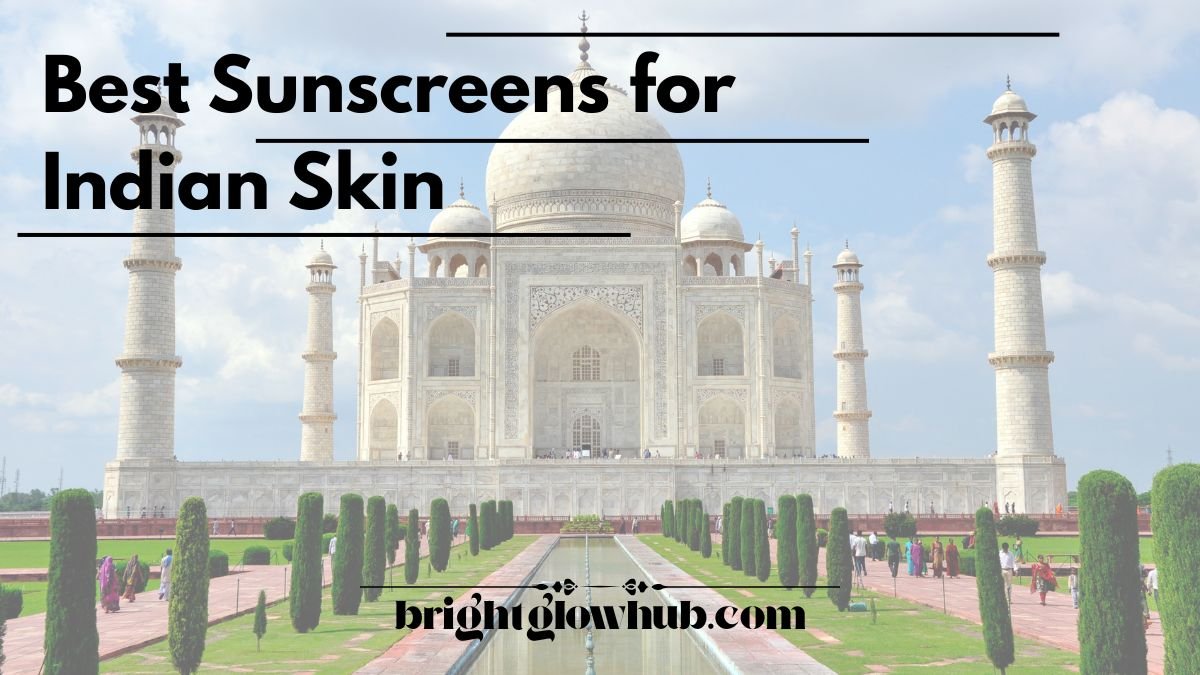Picture this: You’re getting ready for work on a typical Tuesday morning in Mumbai. The sun’s already blazing at 8 AM, and you know it’s going to be one of those scorching days. You reach for your skincare routine, but then pause – which sunscreen should you actually be using? With Indian skin facing unique challenges from intense UV rays, pollution, and humidity, choosing the right sunscreen isn’t just about slapping on any SPF and hoping for the best.
Let’s be real – finding the perfect and Best Sunscreens for Indian Skin can feel like searching for a needle in a haystack. Between conflicting advice online, overwhelming product options, and that persistent myth that “darker skin doesn’t need sunscreen,” many of us are left confused and under-protected.
Why Indian Skin Needs Special Sunscreen Consideration
Here’s something most people don’t realize: Indian skin, with its beautiful range of melanin-rich tones, does have some natural protection against UV rays. But – and this is a big but – that doesn’t mean we’re invincible. Dermatologists generally recommend using a broad-spectrum sunscreen with an SPF of 30 or higher for Indian skin, and there’s good reason for this.
Our skin faces a triple threat that many other regions don’t deal with:
- Intense tropical sun that can be harsh year-round
- High humidity that can make heavy sunscreens feel suffocating
- Air pollution that can interact with UV exposure to cause additional skin damage
The result? We need sunscreens that are specifically formulated to handle these conditions without feeling like we’re wearing a thick mask all day.
What Makes a Sunscreen Perfect for Indian Skin?

SPF Sweet Spot: 30-50 is Your Best Friend
For Indian skin, it is recommended to choose a sunscreen with at least SPF 30 and a PA rating of +++ or higher. But here’s the insider secret – you don’t always need to go for the highest SPF number on the shelf. SPF 30 blocks about 97% of UVB rays, while SPF 50 blocks about 98%. The difference isn’t as dramatic as the numbers might suggest.
Broad-Spectrum Protection is Non-Negotiable
Look for sunscreens that protect against both UVA and UVB rays. UVB rays cause sunburn, but UVA rays are the sneaky culprits behind premature aging and hyperpigmentation – something Indian skin is particularly prone to.
Lightweight Formulations That Actually Work
Nobody wants to feel like they’re wearing a greasy film in 40°C heat with 90% humidity. The best sunscreens for Indian skin are those that absorb quickly, don’t leave a white cast, and work well under makeup.
Top best-Recommended Sunscreens for Indian Skin
1. Photostable Gold SPF 55 – The Matte Miracle
This has become a favorite among dermatologists for oily and combination skin. Photostable Gold SPF 55 Matte Finish Sunscreen Gel offers excellent protection without that greasy feeling that makes you want to wash your face every hour.
Why it works for Indian skin:
- Matte finish that controls oil
- Doesn’t pill under makeup
- Water-resistant formula perfect for humid conditions
2. Suncros Soft Cream – The Gentle Giant
Suncros Soft Cream is a dermatologist-recommended sunscreen that offers broad-spectrum protection against both UVA and UVB rays. It helps guard the skin against sunburn, pigmentation, and premature ageing.
Perfect for:
- Sensitive skin
- Those prone to irritation from chemical sunscreens
- Daily office wear
3. Dr. Sheth’s SPF 50+ – The Trusted Indian Brand
Dr Sheth is a well-known pharmacy brand in India and is trusted for its products that are well suited for the Indian skin. This SPF 50+ sunscreen has gained a loyal following for good reason.
What makes it special:
- Formulated specifically understanding Indian skin needs
- Doesn’t cause breakouts
- Great value for money
4. Episoft AC Moisturiser SPF 30 – The Multi-Tasker
This is perfect if you’re someone who wants to streamline their morning routine. It combines moisturization with sun protection, making it ideal for normal to dry skin types.
Sunscreen Mistakes That Are Sabotaging Your Skin
The “I’m Indoors All Day” Trap
Think you’re safe because you work in an office? Think again. UVA rays can penetrate through windows, and that afternoon chai by the window is still exposing your skin to damage.
The Stingy Application Problem
Here’s a reality check: most of us use about half the amount of sunscreen we actually need. You should be using about 1/4 teaspoon for your face alone – that’s more than you think!
The “Once a Day” Myth
Sunscreen isn’t a one-and-done deal. You need to reapply every 2-3 hours, especially if you’re outdoors or sweating. Yes, even over makeup – there are powder sunscreens and setting sprays with SPF for this exact reason.
How to Choose YOUR Perfect Sunscreen
For Oily Skin
Look for gel-based or matte-finish formulations. Avoid anything with heavy oils or that promises “extra hydration” – you don’t need it.
Affordable Sunscreen for Oily Skin
For Dry Skin
Cream-based sunscreens with added moisturizing ingredients like hyaluronic acid or ceramides will be your best bet.
For Sensitive Skin
Mineral sunscreens with zinc oxide or titanium dioxide are gentler than chemical sunscreens. They might leave a slight white cast initially, but newer formulations are much better.
12 Best Sunscreens for Sensitive Acne-Prone Skin in the US
For Acne-Prone Skin
Non-comedogenic is your keyword. Also, look for sunscreens with niacinamide or salicylic acid that can actually help with acne while protecting your skin.
The Real Talk: Budget vs. Premium
Here’s something no one talks about enough – you don’t need to spend ₹2000 on a sunscreen for it to be effective. Some of the best-performing sunscreens for Indian skin are available at your local pharmacy for under ₹500.
What matters more than price:
- Consistent daily use
- Proper application amount
- Regular reapplication
- Choosing the right formulation for your skin type
Making Sunscreen a Habit That Actually Sticks
The best sunscreen is the one you’ll actually use every single day. Here are some game-changing tips:
Keep multiple tubes: One for home, one for your bag, one for the office desk.
Make it part of your morning ritual: Apply sunscreen right after brushing your teeth – link it to something you already do automatically.
Set phone reminders: For reapplication, especially if you’re outdoors frequently.
Find your perfect texture: If you hate how a sunscreen feels, you won’t use it. Keep trying different formulations until you find “the one.”
Frequently Asked Questions About Sunscreens for Indian Skin
Do people with darker Indian skin really need sunscreen?
Absolutely yes! While melanin does provide some natural protection (equivalent to about SPF 4), it’s nowhere near enough to prevent sun damage, hyperpigmentation, and premature aging. Indian skin is actually more prone to developing dark spots and uneven skin tone from sun exposure, making sunscreen even more crucial.
Can I use the same sunscreen on my face and body?
You can, but it’s not ideal. Facial skin is more delicate and prone to breakouts, so face-specific sunscreens are usually lighter and non-comedogenic. Body sunscreens are formulated for larger areas and might feel too heavy for daily facial use. If budget is a concern, choose a facial sunscreen and use it for both – it’s better than skipping face protection.
How much sunscreen should I actually apply?
For your face and neck, you need about 1/4 teaspoon (roughly the size of a 5-rupee coin). Most people use way less than this! For your entire body, you’d need about 2 tablespoons. Yes, it seems like a lot, but using less dramatically reduces the protection you’re getting.
Do I need sunscreen during monsoon or winter?
Yes! UV rays penetrate clouds, and in India, even winter sun can be quite intense, especially between 10 AM and 4 PM. During monsoons, you still need protection – those brief sunny moments between showers can cause damage, and UVA rays are present even on cloudy days.
Can I skip sunscreen if my foundation has SPF?
SPF in makeup is better than nothing, but it’s not enough on its own. You’d need to apply a thick layer of foundation to get the stated SPF protection, which would look cakey and unnatural. Use a proper sunscreen first, then apply your SPF foundation on top for extra protection.
Is expensive sunscreen always better?
Not necessarily! Some ₹300 sunscreens perform just as well as ₹2000 ones. What matters is the formulation, SPF rating, and whether you’ll use it consistently. A budget sunscreen you use daily is infinitely better than an expensive one sitting in your drawer.
What’s the difference between SPF 30 and SPF 50 for Indian skin?
SPF 30 blocks about 97% of UVB rays, while SPF 50 blocks about 98% – the difference is smaller than you’d think. For most Indian skin types and daily use, SPF 30 is perfectly adequate. SPF 50+ is better if you’re going to be outdoors for extended periods or have very fair skin that burns easily.
The Bottom Line
Protecting Indian skin from sun damage isn’t about finding the most expensive or trending product – it’s about understanding your skin’s unique needs and finding a sunscreen you’ll actually use consistently. Dermatologists across India are stressing that sunscreen is no longer optional it’s a daily essential, and they’re absolutely right.
Whether you go with a budget-friendly pharmacy brand or invest in a premium formulation, the most important factors remain the same: broad-spectrum protection, appropriate SPF, and a texture you love. Your future self – with healthy, protected skin that ages gracefully – will thank you for making this choice today.
Remember, the best sunscreen for Indian skin is the one that you’ll wear every single day, rain or shine, indoors or out. Because when it comes to sun protection, consistency beats perfection every single time.
Disclaimer :
This article is for informational purposes only and does not constitute medical advice. For specific concerns about skin conditions or reactions, please consult a board-certified dermatologist.
Remember to consult with a dermatologist for personalized skincare advice, especially when addressing specific skin concerns or combining sunscreen with other active ingredients.
Always patch test new sunscreens before full application, and consult with a dermatologist if you have specific skin concerns or conditions.
